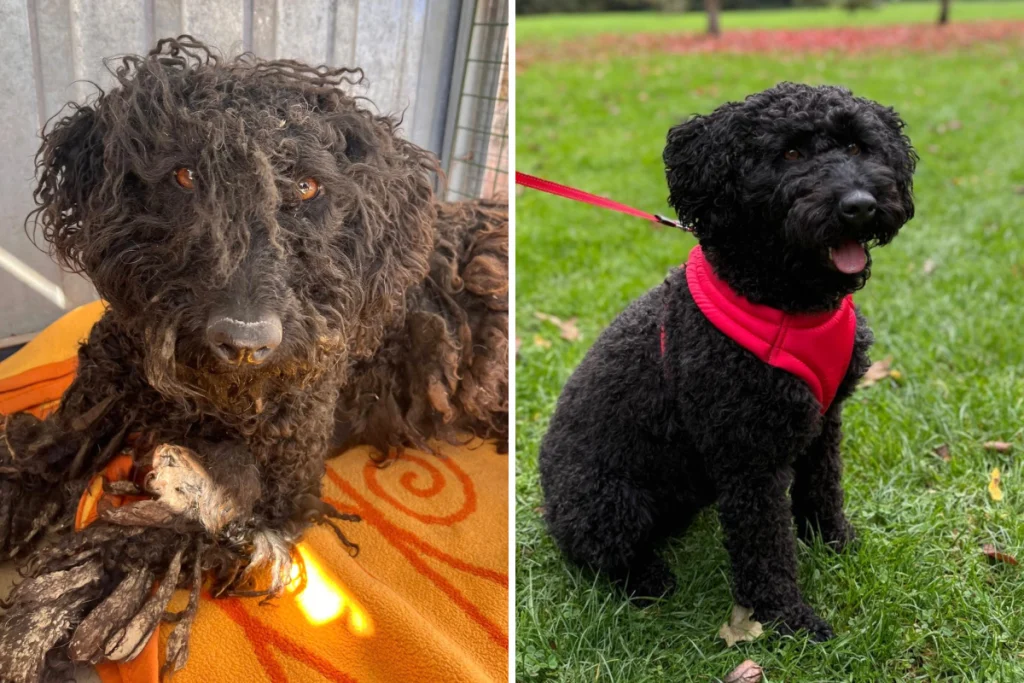The Unexpected Journey of Adopting Priscilla
When I decided to adopt a rescue dog last month, I braced myself for the challenges ahead. Having written extensively about animal rescues, I knew the common narrative: traumatized dogs who hide for days, trust that builds over agonizing weeks, and affection that comes only after patient persistence. The Facebook post about Priscilla, a black poodle mix, painted a heartbreaking picture – she had been found in terrible condition, matted and tick-infested, so terrified of humans that rescuers had to humanely trap her. She had recently been separated from her four puppies, adding another layer to her trauma. Based on all this, I prepared my Birmingham, England home for what I expected would be a long, difficult adjustment period for both of us.
What happened instead still amazes me daily. After a grueling four-day journey from Hungary to England (a distance of over 1,460 miles), Priscilla strutted into my home as if she had lived there her entire life. Within thirty minutes, this dog who had once been “frightened and shut down” was enthusiastically playing fetch. Two hours later, she rolled onto her back, confidently demanding belly rubs. The tentative adjustment period I had mentally prepared for simply never materialized. Instead, Priscilla and I became inseparable almost immediately, her presence in my home feeling so natural that it seemed impossible she hadn’t always been there. Her calm, trusting demeanor seemed completely at odds with her documented history of neglect and fear.
The remarkable transformation from terrified stray to confident companion wasn’t miraculous – it was the result of dedicated foster care. Before coming to me, Priscilla spent time with a foster carer through HunDogs For Rehoming, a UK charity specializing in rescuing Hungarian dogs. This foster carer worked patiently with Priscilla, building her confidence and teaching her how to live in a home environment – something she had likely never experienced before. I was told that when first rescued, Priscilla would shake uncontrollably from fear, but through consistent love and training, she transformed into a well-adjusted dog with an adorable quirk: she simply cannot relax without a pillow for her head. This intermediary step between rescue and permanent adoption proved invaluable, aligning with research showing that foster programs significantly benefit animals by reducing shelter overcrowding, decreasing disease spread, and lowering euthanasia rates. U.S. studies confirm that dogs who experience foster care have higher adoption success rates and are less likely to be returned to shelters.
Our daily life together has been remarkably smooth from the beginning. Despite recommendations to keep Priscilla indoors for several days to decompress, her curiosity and confidence had her eager to explore the neighborhood after just 24 hours. She had only one indoor accident on her first day – likely marking territory – and has been perfectly house-trained since. Within days, we were jogging 3k together, suggesting her physical recovery matched her emotional one. Her adaptability continues to impress me; she’s equally content with long walks, lazy days lounging at home, accompanying me to coffee shops, or visiting friends and family. The only significant change to our routine came after some fireworks displays, which prompted her to upgrade from her own bed to mine – an arrangement that has become permanent and that neither of us seems inclined to change.
I often tell people I’ve won the “puppy jackpot” with Priscilla, recognizing that not every adoption story unfolds so smoothly. Yet I’m keenly aware that without the intervention of her foster carer, my experience might have been dramatically different. The terrified dog who once needed to be trapped might never have transformed into this confident companion who approaches life with such enthusiasm. Priscilla’s journey – from abandoned mother found in deplorable conditions in Hungary to beloved pet in a Birmingham home – spans more than just physical distance. It represents the remarkable resilience animals can show when given proper care, patience, and the chance to trust again.
What strikes me most about Priscilla, now about 18 months old, is the gratitude she seems to embody. There’s something in her demeanor that suggests an understanding of her second chance – an appreciation for simple comforts like a pillow for her head or the security of a routine. While I can’t know what she truly comprehends about her journey, I see a dog who has embraced her new life completely, leaving behind the trauma without carrying visible scars from it. Her story illustrates the transformative power of rescue work, particularly the vital role of fostering in preparing animals for successful adoptions. Priscilla’s seamless transition into my life wasn’t just luck – it was the culmination of compassionate intervention at every stage of her rescue journey. For anyone considering adding a pet to their family, her story offers a powerful reminder that sometimes the animals who have survived the worst circumstances bring the most extraordinary capacity for love and adaptation into our homes.













